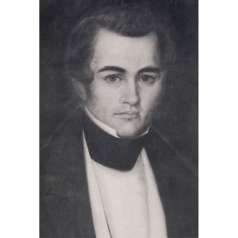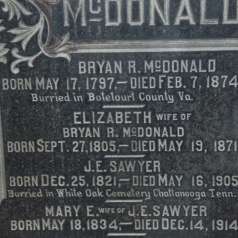
Murfreesboro resident Alice Ready (1842-1890) kept a journal during the early years of the Civil War. An ardent supporter of the Confederacy, Ready despaired over the fall of Nashville and the Union occupation of Murfreesboro. Her diary contains vivid descriptions of officers and soldiers on both sides of the conflict, as well as heartfelt expressions of the powerlessness she felt over being a woman during wartime. The daughter of Martha Alvord Strong Ready and Charles Ready, Jr., Alice was a well-educated 18-year-old when the war began. She had attended the well-respected Patapsco Female Institute in Ellicott Mills, Maryland. Her father, a lawyer, judge, and former mayor of Murfreesboro, served as a United States Congressman from 1853-1858. Her brother, Horace, served in the Army of Tennessee. Alice wrote briefly about wartime developments in the summer of 1861 and recorded events more thoroughly in the spring of 1862. She lamented the Confederate surrender of Fort Donelson and criticized Gen. Albert Sydney Johnston’s leadership. She expressed a desire to be a man so she could fight. In February-March 1862, when the Army of Tennessee stayed in Murfreesboro for a few weeks, Ready assisted the Confederate war effort. With her sister, Martha (Mattie) Ready, she visited sick soldiers at the hospital and brought food. Alice filled in as a clerk for Gen. William Hardee, whom she much admired. When the troops prepared to leave, Alice and her mother packed provisions for them. Alice described visits to her family’s home from Captain John Hunt Morgan, who later married Mattie Ready. Alice was distressed over the arrival of Union forces in Murfreesboro in March 1862 and adamantly refused to meet Union officers who called on her father. She declared that she was “a greater rebel than ever before” after occupation and claimed that other residents agreed. Alice chronicled the beginnings of the end of slavery in Murfreesboro; some of her family’s slaves were among those who fled during Union occupation. Her diary ends at the end of April 1862, shortly after her father was arrested for refusing to take the oath of allegiance.






